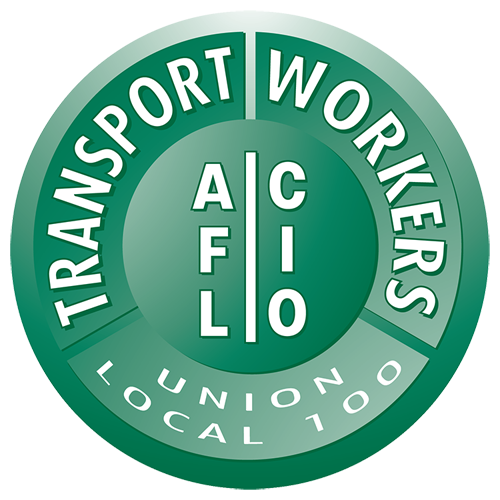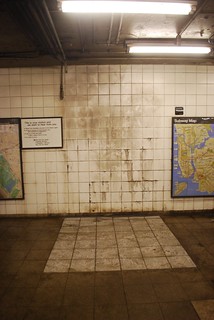 It’s been a few days, and the news hasn’t stopped on the transit front. As the MTA Board prepares to vote for a fare hike on Wednesday — Plan B appears to be in the lead — let’s look at one of the more recent developments: a new labor deal. The fare hike I’ll cover this week once the Board officially votes on that looming $3 base fare.
It’s been a few days, and the news hasn’t stopped on the transit front. As the MTA Board prepares to vote for a fare hike on Wednesday — Plan B appears to be in the lead — let’s look at one of the more recent developments: a new labor deal. The fare hike I’ll cover this week once the Board officially votes on that looming $3 base fare.
In the afterglow of the opening of the Second Ave. Subway, the MTA’s peaceful resolution of labor negotiations with the TWU slipped under the radar for many, but after nearly a decade of rancorous back-and-forth, stemming in part from fallout over 2005 and in part with poor relationships between TWU presidents and the revolving door of MTA heads, the two sides have reached something of a detente. By many accounts, this is due to the heavy-handed style of Gov. Andrew Cuomo; he wants to run a smooth ship in New York to position himself for a national run. Whatever the reason, the TWU and MTA came to terms on a deal the day the old one expired.
For the union, the deal guarantees wage increases slightly above the recent pace of inflation, and the TWU has trumpeted the new agreement featuring “No Concessions!” That means no work-rule reform, no reduction in staff and, on the MTA’s side of the ledger, no labor cost reform. TWU workers get 2.5 percent wage increases this year, and another 2.5% on February 16, 2018. A pension cash bonus of $500 comes due in early 2019, and night and weekend workers get a bump in salary. A slate of other benefits, ranging from better shoes to uniform cleaning allowances to commutation passes, were included in the deal.
It’s a fine one for the workers, but some are concerned with how it will impact the MTA’s books. The Citizens Budget Commission released a statement:
“New Yorkers should welcome the news of 28 months of labor peace on the subways and buses, but it comes at a price. The settlement is more generous than the MTA’s financial plan provides and may require higher fare increases than planned or more borrowing to support the capital program. It also means another 28 months are lost before productivity gains from work rule and benefit changes can be achieved.”
Similarly, Nicole Gelinas, writing in The Post, flagged a few areas of concern, the “me-too” clause. She writes:
If the separate unions at the Long Island Rail Road get raises that are higher than what the subway and bus workers just got, the MTA has to “reopen” its agreement with the subway and bus workers, presumably to offer the higher raises. TWU workers want this provision because they make less than LIRR workers. The Empire Center notes that in 2014, the average New York City transit worker made $76,230, while the LIRR worker made $106,103.
But LIRR workers make good money for a bad reason: Federal railroad law governs them, and allows them to go on strike, just like airline workers. That means they can, as they did three years ago, threaten to hold the region hostage so they can wring higher pay. Subway and bus workers, by contrast, are forbidden by state law from striking.
Railway insiders have long wanted the feds to reform the laws that help push LIRR pay so high, so the MTA would have more control over its own labor negotiations. It makes no sense to attack the problem from the other direction: the MTA voluntarily replicating its weaker commuter-rail negotiating position when it comes to subway workers. Plus, as a practical matter, the LIRR only employs about 7,000 people. The subways and buses employ nearly 50,000. It makes even less sense for union leaders who represent a relatively small workforce to set the wages for the much larger workforce. Finally, now that the TWU workers have this provision, it will stay there and govern future contracts, too — unless the MTA “pays” something in the future to take it out.
On top of this new seemingly innocuous clause, the MTA hasn’t released any information on the actual costs of the new TWU deal, and the Board is voting on Wednesday to raise fares. We don’t know how much the new deal will cost the MTA; we don’t know what impact that will have on the MTA’s outright deficit projections; and we don’t know how much this will increase the next fare hike in 2019. (No matter the numbers, it won’t be Tom Prendergast’s responsibility as he’s leaving next Tuesday.)
For the TWU, the wage increases are deserved and well-earned. No one should begrudge a modest wage increase for the men and women who run our subways. But the MTA continues to give away the farm without any concessions on work rule reform; for instance, it’s been years since OPTO was even on the negotiating table. And the people who continue to pay for this are the riders, through higher fares for the same service. It’s an unsustainable model no one is willing to change.

 After over two years of negotiating (or barely negotiating) with various Chairmen, the MTA and TWU Local 100, its largest union, are
After over two years of negotiating (or barely negotiating) with various Chairmen, the MTA and TWU Local 100, its largest union, are 
